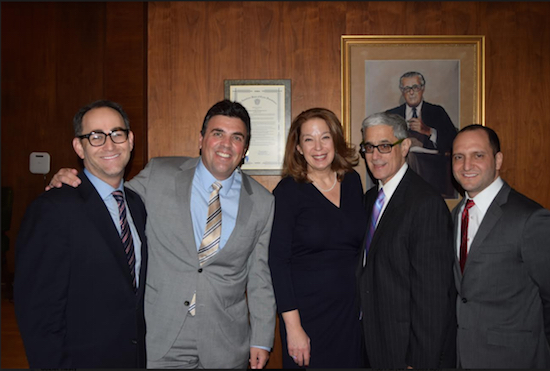Attorneys instructed on how to avoid grievances at Brooklyn Bar Association

Attorneys try their best to make every client happy, but occasionally even the best attorneys will fail to meet their clients’ expectations and a grievance will be filed against them. It’s part of doing business in the legal world.
However, the Brooklyn Bar Association (BBA) wants to make sure that lawyers are doing everything they can to avoid grievances, which is why it hosted a continuing legal education (CLE) seminar titled “Practical Tips for Avoiding Grievances: What Every Attorney Needs to Know” in Brooklyn Heights on Monday.
“How do we keep our clients happy?” wondered Daniel Antonelli, moderator of Monday night’s CLE. “We try to do the right thing and try to make sure our client understands the situation as best they can. But everyone has a lot of cases and a lot going on. How do you make sure you don’t miss anything? How do you manage clients’ expectations? And how do you deal with a grievance if one gets filed against you?”

Brooklyn Boro
View MoreNew York City’s most populous borough, Brooklyn, is home to nearly 2.6 million residents. If Brooklyn were an independent city it would be the fourth largest city in the United States. While Brooklyn has become the epitome of ‘cool and hip’ in recent years, for those that were born here, raised families here and improved communities over the years, Brooklyn has never been ‘uncool’.